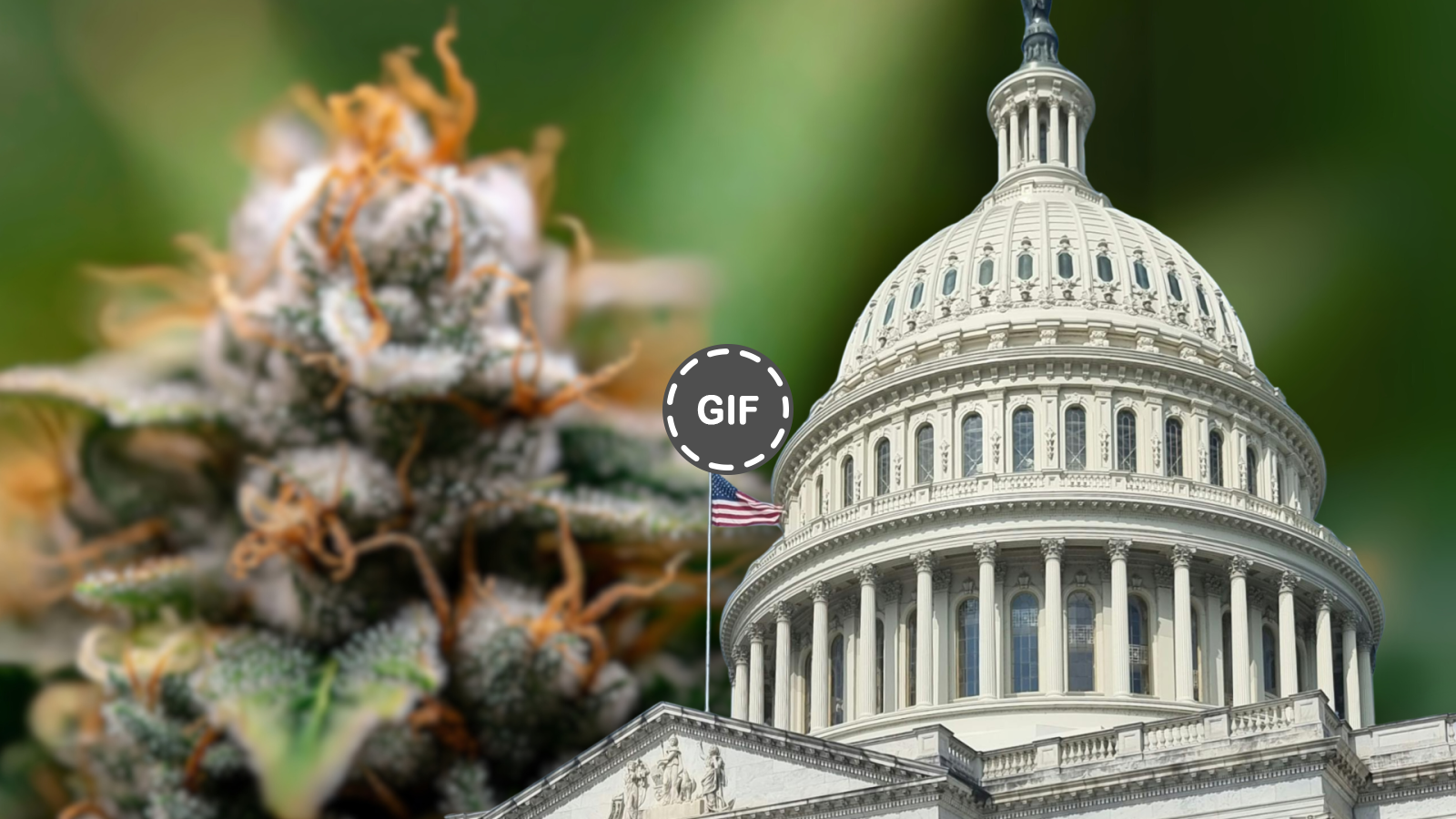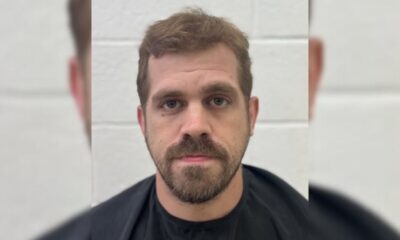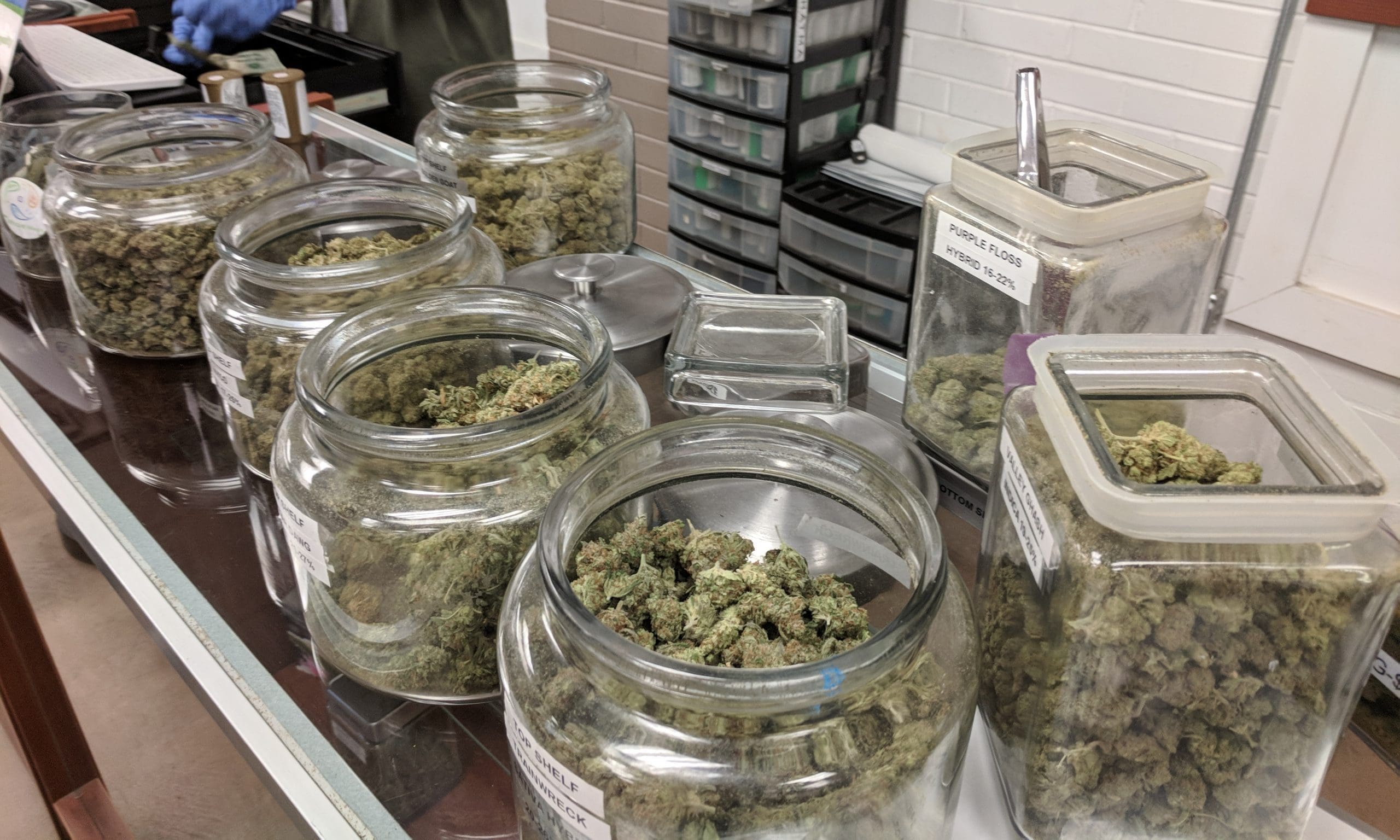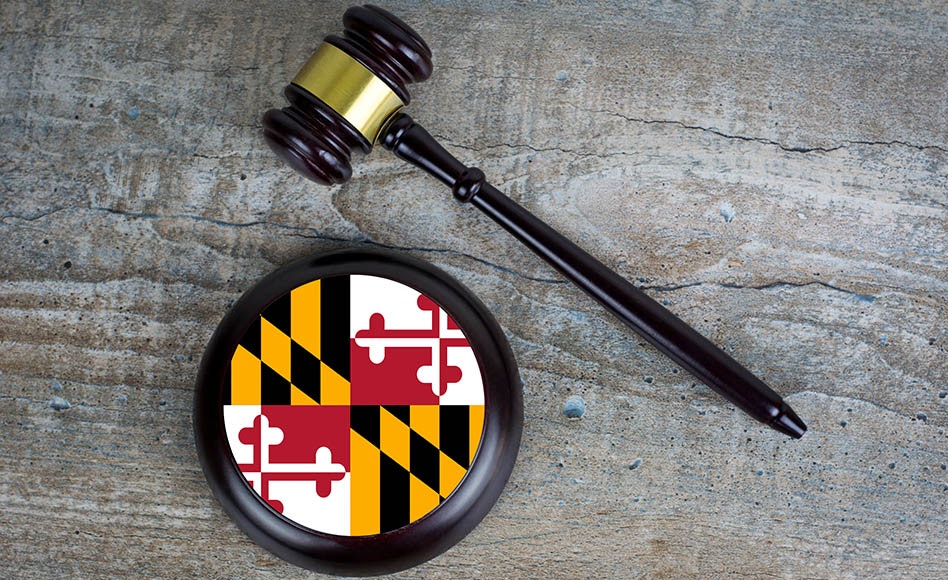featured
The MORE Act is Back! 40 Lawmakers Push Full Cannabis Legalization Bill
Published
2 weeks agoon

There is a political and cultural tension running through the U.S. While dispensaries flourish on the streets and the word “rescheduling” appears in every headline, Congress has decided to step in. On Friday, a group of Democratic lawmakers reintroduced what many describe as the most sweeping bill yet to remove cannabis from the list of controlled substances and legalize it at the federal level.
In a political hornet’s nest where ideology, business, and civil rights collide, the cannabis debate has become an uncomfortable mirror of what the United States is today: should we keep punishing thousands through prison and deportations or fuel an industry that already moves billions of dollars a year?
40 lawmakers introduce new cannabis bill: What the MORE Act means
Last Friday, as speculation swirled over what Donald Trump will do about marijuana rescheduling, a group of 40 Democratic lawmakers took the lead in Congress. Led by Jerry Nadler (New York) and joined by Dina Titus (Nevada), Ilhan Omar (Minnesota), and Nydia Velázquez (New York), the Marijuana Opportunity, Reinvestment and Expungement Act—better known as the MORE Act—made its return to the House.
To get this straight, it helps to break down the difference between rescheduling and descheduling:
- Rescheduling means moving cannabis from Schedule I—reserved for substances deemed to have high abuse potential like heroin, LSD, MDMA, and currently cannabis—to the less restrictive Schedule III, which includes substances with lower abuse potential and accepted medical uses such as ketamine, codeine, or steroids.
- Descheduling, on the other hand, would remove cannabis from the Controlled Substances Act entirely, treating it more like alcohol or tobacco and leaving it up to each state to decide whether (and how) to regulate or prohibit it. This would effectively legalize the plant.
The MORE Act puts forward this latter option: a broad, definitive change. It’s one of the most comprehensive and ambitious proposals ever introduced in Washington to end cannabis prohibition once and for all.
As Nadler noted when presenting it: “It is long past time to decriminalize marijuana at the federal level, expunge marijuana convictions, and facilitate resentencing, while reinvesting in the communities most adversely impacted by the War on Drugs.”
This is not the first time this bill has appeared in Congress. The House of Representatives has already approved previous versions twice: in 2020 (228-164) and in 2022 (220-204). But on both occasions, the bill stalled in the Senate, which never brought it to a vote. The 2025 version is the fourth consecutive reintroduction.
What does it propose this time?
The bill looks not only forward but also back:
- Expunge federal marijuana-related convictions.
- Allow resentencing for those still under supervision.
- Guarantee rights. No one would lose public benefits or immigration status because of a marijuana record.
For Dina Titus, co-chair of the Cannabis Caucus, the initiative is welcome, even if overdue: “It’s time to modernize our laws to reflect the reality of cannabis use in the United States, recognize the legitimate industry that has emerged, and fully embrace the medical benefits of the plant. The federal government must catch up to the states, and this bill provides a framework to end the failed War on Drugs while supporting communities and businesses nationwide,” she said.
Ilhan Omar, also co-chair, was blunt: “The MORE Act will decriminalize marijuana at the federal level, clear records, and reinvest in the communities most harmed by these failed policies. In Minnesota, we have already shown that legalization can deliver both fairness and economic opportunity. It is past time for the federal government to follow our lead and finally end the era of criminalization.”
And from New York, Nydia Velázquez emphasized the social dimension: “For too long, communities of color have carried the weight of unfair marijuana laws that fueled incarceration and denied people opportunity… The MORE Act is about justice, about giving people a second chance, and about making sure small businesses and workers in these communities can share in the benefits of legalization.”
On the economic front, the proposal includes:
- A 5% federal tax on cannabis sales, rising to 8% within five years.
- The money would go into an Opportunity Fund, aimed at repairing the harms of the War on Drugs and opening the market to those who’ve been excluded.
The three grant programs
In addition, the MORE Act creates three core programs:
- Community Reinvestment Grant Program: Provides services to those most impacted by prohibition, including job training, re-entry support, legal aid, literacy programs, youth activities, mentoring, and substance use treatment.
- Cannabis Opportunity Grant Program: Funds loans for small cannabis businesses owned and operated by socially and economically disadvantaged individuals.
- Equitable Licensing Grant Program: Supports state-level programs that reduce barriers to licensing and employment in the cannabis sector for communities historically targeted by criminalization.
So where does the money go?
Details vary slightly depending on the source, but the idea is clear. The funds would be reinvested in the communities that have borne the brunt of prohibition.
Forbes outlines the breakdown as follows:
- 50% → Community reinvestment (Department of Justice)
- 10% → Substance use treatment programs
- 40% → Small Business Administration, for an equitable licensing program
Cannabis Business Times, meanwhile, adds that part of the fund would also be directed to the Office of the Attorney General. This would implement sections of the Omnibus Crime Control and Safe Streets Act, strengthening coordination across state and local justice systems.
Advocacy voices and opinions
The support is rolling in. Alongside the 40 initial Representatives, the bill is backed by a diverse coalition of organizations, including the Drug Policy Alliance (DPA), the ACLU, NORML, the SEIU union, and the Last Prisoner Project, among many others.
Maritza Perez Medina, from the Drug Policy Alliance, put it plainly: “As long as marijuana remains in the Controlled Substances Act (CSA), it will remain federally criminalized, regardless of which schedule it is placed in. The MORE Act is the only bill introduced this Congress that would remove (“deschedule”) marijuana from CSA, which would decriminalize marijuana at the federal level nationwide.”
Dasheeda Dawson, of the Cannabis Regulators of Color Coalition, also shared: “The MORE Act delivers the reform America needs: ending prohibition while mandating equity, expungement, and investment that communities most impacted by prohibition have long deserved.”
From the Last Prisoner Project, Jason Ortiz celebrated: “In addition to descheduling cannabis, the MORE Act offers long-overdue relief by automatically expunging convictions and freeing people still suffering behind bars.”
Kat Murti, of SSDP, added: “From the very first introduction of the MORE Act, SSDP has championed this bill as the most comprehensive path toward sensible cannabis policy reform—one which would end federal prohibition, clear past convictions, and begin the process of healing the communities most harmed by federal cannabis prohibition.”
And Morgan Fox, of NORML, concluded: “This legislation embodies the wishes of more than two thirds of the American public, and will create a federal cannabis framework that respects states’ rights and is focused on science, pragmatism, and justice.”
The fight may be tight, but the numbers are clear
There are many—countless—opinions: some in favor, others against. But if there’s one thing that doesn’t lie or leave much room for doubt, it’s the numbers. According to a Pew Research Center survey published this year, 88% of U.S. adults support cannabis legalization in some form: 54% for both medical and adult use, 33% for medical use only, and just 12% oppose any legalization initiative.
However, in the political arena, consensus is far from being reached. Nine Republican lawmakers recently sent a letter to Donald Trump urging him to reject marijuana rescheduling.
In the document, they called the Biden administration’s proposal “corrupt and flawed” and warned that sending such a signal to society would mean telling young people that marijuana “is not harmful.” They also cautioned that such a change would allow large cannabis corporations and foreign cartels to secure billions of dollars in federal tax deductions.
The other side of the coin comes from 32 state attorneys general. In a joint statement, they urged Congress to move forward not only with legalization but also with financial support measures such as the SAFER Banking Act, which is key for the industry to operate normally within the banking system.
Their argument is simple and pragmatic: if marijuana is already legal in most of the country, blocking access to the banking system only increases security risks and limits business growth. They also argue that facilitating financial access would allow for better oversight and more effective tax collection in an industry that has created 425,000 jobs and expects annual sales of $34 billion by the end of the year.
Beyond the partisan dispute, there are also nuances within the progressive camp and among those who defend marijuana. Some citizens welcome any progress and see rescheduling to Schedule III as a step in the right direction. Others, however, view it as little more than insufficient window dressing, since as long as cannabis remains in the Controlled Substances Act, it will continue to be criminalized at the federal level. Hence the insistence on descheduling—removing the plant entirely from the list—as proposed by the MORE Act.
And there is a third group that supports moving forward, but with distrust. Critics warn that a shift to Schedule III could end up mainly benefiting large pharmaceutical companies, who would find the path cleared to patent cannabis-derived medicines, pushing aside small growers and the independent market. For these voices, rescheduling could act as a Trojan horse, shutting out those who sustained the industry from the shadows for decades.
The reality is that the debate unfolds against a backdrop that cannot be ignored. We’re talking about nearly a century of the War on Drugs, a failed policy that did not reduce consumption but did forge a deadly link to mass incarceration, among many other harms.
In the U.S., the number of people incarcerated for drug law violations rose from fewer than 25,000 in 1980 to nearly 300,000 in state and federal prisons. And no, this did not reduce either substance use or the supply on the illegal market.
Meanwhile, on the other side of the counter, the legal industry is flourishing, generating more than $30 billion in annual sales in the U.S., creating thousands of jobs and delivering tax revenue to the states. A contrast that lays bare the central paradox: prison and deportations for some, multibillion-dollar businesses for others.
This article was first published on El Planteo.

Author: mscannabiz.com
MScannaBIZ for all you Mississippi Cannabis News and Information.
You may like
-


Six hurt in shooting at marijuana event in SF's Bayview
-


Kentucky Medical Marijuana Dispensaries Should Be Stocked With Products Ready For Sale By Next Month, Top State Official Says
-


Deputies: 3,500 child sex abuse images, marijuana grow operation found in NC home raid
-


Regulators Ready to Enforce Cannabis Laws on Hemp THC Retailers in Maryland
-


California reaps over $250 million from 2nd Quarter cannabis sales
-


Meet the World’s First Cannabis Rugby Team: Crewmen 7’s Tackle Stigma Head-On
featured
Kentucky Medical Marijuana Dispensaries Should Be Stocked With Products Ready For Sale By Next Month, Top State Official Says
Published
58 minutes agoon
September 15, 2025
Kentucky’s top medical marijuana regulator said he expects that dispensary shelves will be stocked with products ready for sale to patients by next month.
Two of the state’s 16 medical cannabis cultivators are now operational, according to Cannon Armstrong, executive director of Kentucky’s Office of Medical Cannabis (OMC).
“If everything goes according to plan for them, I think that they’ll have medical cannabis that will be ready to harvest and be put on the shelf, you know, by October,” he told Spectrum News 1. “So we’re moving and we’re finally getting to a point where we’re, these patients are going to receive this medication sooner than later.”
Armstrong predicted that the first sales will likely occur at a dispensary in Beaver Dam called The Post.
“I think you’re going to see the first products out there based upon just how it’s shaken out,” he said. “You know, someone may step up their timeline and may get out there before that or get product from there and place it somewhere else in the state.”
As of now, OMC has approved more than 19,000 patients certifications, Armstrong said.
He added that medical cannabis supplies should be relatively scarce as the market first launches, and said that as a result initial prices will be higher than they eventually will be.
Earlier this month, Gov. Andy Beshear (D) said he thought medical marijuana would be available to Kentucky patients by the end of 2025.
“The medical marijuana program is moving forward,” he said at a press briefing at the time.
“I think most of our dispensaries now have their home address [and] are set about where they’re going to be, but [for] some of the inspections that have to happen in dispensaries, they have to have product that’s there,” he said. “So I do believe they’ll be operating before the end of the year.”
Those comments came roughly a month after the governor announced that the state’s first medical cannabis dispensary has officially been approved for operations, calling it “another step forward as we work to ensure Kentuckians with serious medical conditions have access to the medicine they need and deserve.
He previously touted an earlier “milestone” in the state’s forthcoming medical marijuana program, with a licensed cultivator producing “the first medical cannabis inventory in Kentucky history.”
Beshear’s office has said that other cannabis licensees, including processors and testing labs, are expected to become operational soon.
In July, Beshear sent a letter to President Donald Trump, urging him to reject congressional spending bill provisions that would prevent the Justice Department from rescheduling marijuana.
In the letter to the president, he emphasized that a pending proposal to move cannabis from Schedule I to Schedule III under the Controlled Substances Act (CSA) is something “you supported in your presidential campaign.”
“That process should be allowed to play out. Americans deserve leadership that won’t move the goalposts on them in the middle of the game,” Beshear said, noting that he was among the tens of thousands who submitted public comments in favor of the reform after it was initiated under the Biden administration, “demonstrating broad public interest in rescheduling.”
“I joined that effort because this is about helping people. Rescheduling would provide suffering patients the relief they need,” the governor said. “It would ensure communities are safer—because legal medical products reduce the illicit market. It would provide new, meaningful research on health benefits.”
Beshear also mentioned a letter to DEA he signed onto last year urging rescheduling, “because the jury is no longer out on marijuana. It has medical benefits.”
Back on the state level, the governor recently said he acknowledges that “it’s taken longer than we would have liked” to stand up the industry since he signed medical marijuana legalization into law in 2023.
In recognition of that delayed implementation, he recently signed an executive order to waive renewal fees for patients who get their cards this year so that they don’t get charged again before retailers open. And another order he signed providing protections for qualified patients who obtain medical marijuana outside of Kentucky “will stay in place.”
Beshear separately announced in May that the state has launched a new online directory that lets people see where medical cannabis dispensaries will be opening near them.
He emphasized that the state has been working to deliver access to patients “at the earliest possible date,” and that involved expediting the licensing process. The governor in January also ceremonially awarded the commonwealth’s first medical marijuana cards.
—
Marijuana Moment is tracking hundreds of cannabis, psychedelics and drug policy bills in state legislatures and Congress this year. Patreon supporters pledging at least $25/month get access to our interactive maps, charts and hearing calendar so they don’t miss any developments.![]()
Learn more about our marijuana bill tracker and become a supporter on Patreon to get access.
—
Meanwhile, the governor sent a letter to Kentucky’s congressional delegation in January, “urging them to take decisive action to protect the constitutional rights of our law abiding medical cannabis patients” by repealing the federal ban on gun possession by people who use marijuana.
That came after bipartisan Kentucky senators filed legislation that similarly called on the state’s federal representatives to take corrective action, which Beshear said he supports but would like to see even more sweeping change on the federal level.
The federal Bureau of Alcohol, Tobacco, Firearms and Explosives (ATF) warned Kentucky residents late last year that, if they choose to participate in the state’s medical marijuana program, they will be prohibited from buying or possessing firearms under federal law.
As far as the implementation of the state’s medical cannabis law goes, Beshear said in his State of the Commonwealth address in January that patients will have access to cannabis sometime “this year.” He also later shared tips for patients to find a doctor and get registered to participate in the cannabis program.
Health practitioners have been able to start assessing patients for recommendations since the beginning of December.
While there currently aren’t any up-and-running dispensaries available to patients, Beshear has further affirmed that an executive order he signed in 2023 will stay in effect in the interim, protecting patients who possess medical cannabis purchased at out-of-state licensed retailers.
During last year’s November election, Kentucky also saw more than 100 cities and counties approve local ordinances to allow medical cannabis businesses in their jurisdictions. The governor said the election results demonstrate that “the jury is no longer out” on the issue that is clearly supported by voters across partisan and geographical lines.

Author: mscannabiz.com
MScannaBIZ for all you Mississippi Cannabis News and Information.
featured
Regulators Ready to Enforce Cannabis Laws on Hemp THC Retailers in Maryland
Published
2 hours agoon
September 15, 2025
Cannabis regulators in Maryland are ready to bring the force of the law against businesses selling intoxicating products with hemp derivatives after an appellate court ruled in favor of the state last week.
The Maryland Alcohol, Tobacco and Cannabis Commission (ATCC) issued a warning on Sept. 12 that was directed at businesses selling intoxicating THC products without a cannabis license, putting them on notice of the appellate court’s order.
In particular, the Appellate Court of Maryland ruled on Sept. 9 that the state’s law prohibiting businesses from selling hemp-derived products without a license is constitutional, reversing the Washington County Circuit Court’s decision to grant a preliminary injunction from October 2023.
The injunction protected hemp retailers, producers, farmers and consumers, who had challenged the state’s licensing requirement under Maryland’s Cannabis Reform Act (CRA), legislation enacted in July 2023 to regulate an adult-use cannabis market. The injunction had prevented the ATCC from enforcing the cannabis law against businesses selling hemp-derived THC products without a cannabis license for nearly two years.
“All retail establishments engaged in the sale of intoxicating THC, especially those in business prior to July 1, 2023, are on notice that the appellate court’s order, when effective, will terminate the limited protection afforded to them by the preliminary injunction issued by the Washington County Circuit Court,” according to an ATCC notice, warning businesses of its forthcoming enforcement efforts.
“Moving forward, any person or business that engages in the distribution or sale of an intoxicating THC product without the required license issued to them by the Maryland Cannabis Administration (MCA) is subject to criminal prosecution under Maryland law,” according to the notice.
In addition to the ATCC’s restored enforcement powers, the appellate court ruled that intoxicating products containing synthetic hemp derivatives created in a chemical process, such as delta-8 and delta-10 THC, “are now and have always been illegal in Maryland.”
The ATCC provided a list of criminal offenses and violations for the distribution or sale of an intoxicating THC product without a license by the MCA:
- Packaging, Labeling and Potency Violations: Selling a product that violates THC product packaging, labeling and potency standards – ABCA § 36-1104(b)
- False or Illegal THC Advertising: Advertising a product as containing an amount of THC that violates AB § 36-1102 – ABCA § 36-1104(c)(1)
- Unlicensed Sales Above THC Limits: Selling a product that contains more than 0.5 milligrams of THC per serving or 2.5 milligrams of THC per package without a license from the MCA – ABCA § 36-1102(b)(1)
- Synthetic Intoxicating THC Products: Selling or distributing a cannabinoid product that is not derived from naturally occurring biologically active chemical constituents (aka “synthetic intoxicating THC products”) – ABCA § 36-1102(c)
According to the ATCC, the commission has the authority to seize products on sight that violate the Alcoholic Beverages and Cannabis Articles (ABCA) listed above.
Convictions related to the ABCA could result in $5,000 fines for each offense, including up to $10,000 for offenses of selling or distributing synthetic THC products. If convicted, the seized products can be destroyed, according to the ATCC.
“In response to the appellate court’s decision, the ATCC is prepared to expand its state-wide investigation and enforcement actions against any persons and businesses who distribute or sell intoxicating THC products in violation of Maryland law,” according to the notice. “The ATCC continues to be committed to ensuring the public health and safety of Marylanders through the application and enforcement of Maryland’s cannabis laws.”

Author: mscannabiz.com
MScannaBIZ for all you Mississippi Cannabis News and Information.
featured
Meet the World’s First Cannabis Rugby Team: Crewmen 7’s Tackle Stigma Head-On
Published
3 hours agoon
September 15, 2025
Picture this: a rugby pitch, sweat in the air, bodies colliding with that mix of grace and chaos only rugby can deliver. On the sideline, instead of the usual beer logos and corporate banners, you see RAW Rolling Papers. Instead of Budweiser, there’s Beneleaves. Instead of a cooler stacked with light beer, there are capsules packed with CBD, CBG, and electrolytes.
Welcome to the world of Crewmen Rugby 7’s, the first cannabis-backed rugby squad in the United States. Born from a half-serious Instagram experiment and fueled by plant-based sponsorships, the Crewmen are rewriting what sports sponsorship looks like, and clearly enjoying the ride.

From a DM to a Movement
When Nigel Bowman launched the Crewmen, there was no big plan. No investors. No strategy deck. Just a phone, an idea, and an Instagram post.
“Crewmen Rugby 7’s is the first Cannabis Advocacy athletic organization in the United States. We strive to break the stigma between high-performance athletics and cannabis culture. I literally began this team on Instagram just to generate interest from local players for a small tournament. It caught wildfire and took off,” he told High Times.

That wildfire turned into a traveling squad of athletes who now compete in sevens tournaments, welcome players from around the world, and run onto the pitch wearing cannabis-branded kits.
RAW on the Jersey, Respect on the Pitch
If you know cannabis culture, you know RAW. Seeing the logo stamped on a rugby jersey is both a surprise and a statement. It says the old rules are changing.
“Crewmen Rugby is sponsored by amazing brands such as RAW Rolling Papers. Rugby is known for its hard game play and camaraderie,” Bowman said. “We wanted to change the dynamic of Alcohol Sponsorship to Cannabis Sponsorship in the aspect of promoting recovery and wellness. Our amazing sponsors help support the team with covering necessary tour expenses like housing, flights and uniforms. I keep great rapport with sponsors that have helped build us up.”

That partnership didn’t happen overnight. “All of our sponsorships were derived from the Instagram platform and direct messages to the companies. It took about a year and a half to gain sponsorship from RAW. It was well worth the wait to represent such an iconic brand within cannabis culture!”
The takeaway is clear: rugby doesn’t need beer logos to thrive. Cannabis brands can carry the culture too.
Recovery Is Part of the Game
The Crewmen aren’t just about uniforms. They’re leaning into recovery, showing that cannabinoids can help athletes keep going after the toughest hits.
“We have a line of custom-formulated hemp products from our vertical processor, Reverb Wellness, under Crewmen Brands. Some of these products include a topical 3:1 CBD to THC, rosin disposable vapes, recovery capsules with CBD:CBG:Electrolytes and pre-rolls. We also have a line of .510 thread cartridges processed by Beneleaves Limited for Medical and Recreational use in dispensaries around Ohio.”
For Bowman, the products double as proof that cannabis has a place in sports medicine and athlete care.
Stigma, Smashes, and Selling Jerseys
Rugby fields are usually a parade of beer and liquor logos. Cannabis logos, though? They still make people stop and stare. That’s exactly the point.
“Sports and athletics have stigmatized the use of cannabis for as long as I can remember. I started the Crewmen with the idea of putting well-known Cannabis brands in the face of the Rugby community. Athletes use cannabis or CBD to recover from intense workouts/games and I’d like to normalize it within the sports community.”
The reaction has been instant. “Being able to host international athletes is a true privilege. When we wear our uniforms to large-scale tournaments, people always want to buy one. I believe that it’s because they have never seen it before, as alcohol sponsors flood our Rugby Community. We just wanted to separate ourselves from the norm. We still maintain the high-performance aspect of the sport. While wearing the brands that have made a major impact on the Cannabis Community.”
Eyes on Rugbytown
Every team has a dream stage. For the Crewmen, it’s Rugbytown USA in Glendale, Colorado, one of the most prestigious sevens tournaments in the country.
“What would be next for Crewmen Rugby 7’s is ideally to make it to Rugbytown USA. That is the largest-streamed International 7’s competition in the United States. I’m hopeful that 2026 is our year. In previous years, Native Roots dispensary sponsored the Tournament based in Glendale, Colorado. So the rugby community isn’t unfamiliar with cannabis sponsors. But it’s more hush-hush than the narrative that we push with Crewmen Rugby 7’s.”
If a Team Were a Strain
Ask Bowman what strain captures his team, and he doesn’t miss a beat.

“If Crewmen had a signature strain, it would probably be in the Kush lineage. Kush has a wide array of crosses and I believe we showcase individuality while maintaining a common goal. I think we highlight the products under Crewmen Brands by Reverb Wellness very well. They have started to gain popularity nationwide. Even getting our topical to the Rugby Tens Championship in California and Rugbytown for international athletes to use for recovery. Our team is about educating people and players who are not informed about how Cannabis can improve overall health and quality of recovery.”
Shock, Curiosity, Amazement
Face the Crewmen on the field and it’s not just the rugby that gets people talking.
“The reaction that first comes across from our opponents and other spectators is amazement. It’s something a lot of players and staff haven’t seen before we brought Cannabis Sponsors to the table. Now more and more teams are diversifying their sponsors. I’d like to think that cannabis sponsorship will be a normal thing for all athletic associations within the coming years.”
A Gentleman’s Game Played by Hooligans
Bowman says it best: “Rugby is a very high-impact sport. A Gentleman’s Game Played By Hooligans, if you will. Cannabis Culture adds to the team’s identity by spreading education about the plant we are so passionate about. If it weren’t for a wacky idea to start a cannabis sports team one day when I was budtending, we wouldn’t exist. Chase your dream no matter how wacky people may think it is. There’s always at least one person willing to back your cause.”
What started as a shot in the dark is now a traveling crew with a mission. The Crewmen keep playing, keep teaching, and keep proving that the best culture is the one lived out loud.
Photos courtesy of Crewmen Rugby 7.

Author: mscannabiz.com
MScannaBIZ for all you Mississippi Cannabis News and Information.

Six hurt in shooting at marijuana event in SF's Bayview

Kentucky Medical Marijuana Dispensaries Should Be Stocked With Products Ready For Sale By Next Month, Top State Official Says

Deputies: 3,500 child sex abuse images, marijuana grow operation found in NC home raid

Regulators Ready to Enforce Cannabis Laws on Hemp THC Retailers in Maryland

California reaps over $250 million from 2nd Quarter cannabis sales

Meet the World’s First Cannabis Rugby Team: Crewmen 7’s Tackle Stigma Head-On

Texas Supreme Court Refuses To Take Up Marijuana Case Challenging State’s Rejection Of Local Decriminalization Law

California Passes Bill to Ban Intoxicating Hemp Products Outside Cannabis Market

Pending Federal Hemp Legislation Could Reshape The Legal Industry By Banning Some Products (Op-Ed)

Verano Proposes to Redomicile Parent Company From British Columbia to Nevada

8,000 cannabis plants seized from illegal Bradford grow-op

New York Lawmakers Schedule Psychedelics-Focused Hearing To Discuss ‘Medicinal Value And Risks’ Of Psilocybin

Curaleaf Opens Cannabis Dispensaries in Florida, Ohio

How to Protect Your Outdoor Cannabis Crops From Pests

Feds provide anti-cannabis group a platform to bash legalization (Newsletter: September 15, 2025)

Dozen arrested after south Mississippi bust for illegal sales to underage customers

The Toking Traveler: Why Amsterdam Weed Is Mostly Boof

Arkansas Medical Marijuana Sales Are On Track To Set A New Annual Record

When Cannabis Brands Blur Into Youth Culture, Regulators Notice: Lessons From Tobacco’s Past

Rhode Island Marijuana Dispensary License Application Process Officially Launches

Middle school student found with cannabis in bookbag, Charles County deputies say

Smugglers who brought drugs on an industrial scale into Wales jailed

Attorney pulls out bag of cannabis in NC Supreme Court hearing

WHO AM I? Man wanted for New Bern cannabis store theft

Alert: Department of Cannabis Control updates data dashboards with full data for 2023

Connecticut Appoints The US’s First Cannabis Ombudsperson – Yes there is a pun in there and I’m Sure Erin Kirk Is Going To Hear It More Than Once!

5 best CBD creams of 2024 by Leafly

EU initiative begins bid to open access to psychedelic therapies
New Study Analyzes the Effects of THCV, CBD on Weight Loss

Free delta-9 gummies from Bay Smokes

5 best autoflower seed banks of 2024 by Leafly

Discover New York’s dankest cannabis brands [September 2024]

Press Release: CANNRA Calls for Farm Bill to Clarify Existing State Authority to Regulate Hemp Products

Curaleaf Start Process Of Getting Their Claws Into The UK’s National Health System – With Former MP (Resigned Today 30/5/24) As The Front Man

May 2024 Leafly HighLight: Pink Runtz strain

Local medical cannabis dispensary reacts to MSDH pulling Rapid Analytics License – WLBT

Recreational cannabis on ballot for third time in South Dakota

5 best THC drinks of 2024 by Leafly

Horn Lake denies cannabis dispensary request to allow sale of drug paraphernalia and Sunday sales | News

Mississippi city official pleads guilty to selling fake CBD products

6 best CBD gummies of 2024 by Leafly

Nevada CCB to Accept Applications for Cannabis Establishments in White Pine County – “Only one cultivation and one production license will be awarded in White Pine County”

The Daily Hit: October 2, 2024

5 best delta-9 THC gummies of 2024 by Leafly

Weekly Update: Monday, May 13, 2024 including, New Guide for Renewals & May Board meeting application deadline

PRESS RELEASE : Justice Department Submits Proposed Regulation to Reschedule Marijuana

5 best THCA flower of 2024 by Leafly

People In This State Googled ‘Medical Marijuana’ The Most, Study Shows
Trending
-

 California Cannabis Updates1 year ago
California Cannabis Updates1 year agoAlert: Department of Cannabis Control updates data dashboards with full data for 2023
-

 Breaking News1 year ago
Breaking News1 year agoConnecticut Appoints The US’s First Cannabis Ombudsperson – Yes there is a pun in there and I’m Sure Erin Kirk Is Going To Hear It More Than Once!
-

 best list1 year ago
best list1 year ago5 best CBD creams of 2024 by Leafly
-

 Business12 months ago
Business12 months agoEU initiative begins bid to open access to psychedelic therapies
-

 cbd1 year ago
cbd1 year agoNew Study Analyzes the Effects of THCV, CBD on Weight Loss
-

 Bay Smokes1 year ago
Bay Smokes1 year agoFree delta-9 gummies from Bay Smokes
-

 autoflower seeds12 months ago
autoflower seeds12 months ago5 best autoflower seed banks of 2024 by Leafly
-

 cannabis brands12 months ago
cannabis brands12 months agoDiscover New York’s dankest cannabis brands [September 2024]





